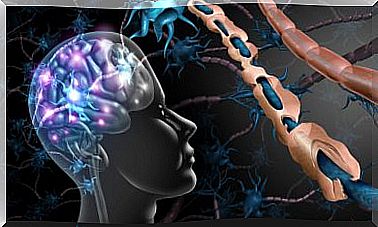Sometimes What Ends Is Not Love, But Patience
It doesn’t matter how much we love someone, it doesn’t matter how much time we’ve shared or the dreams we’ve built Sometimes love alone is not the key to happy relationships. This time we will be discussing why it is important to limit our patience.
Patience has a limit, why end that relationship?
Some people make the mistake of thinking that relationships are eternal, no matter what they do, the other will always be there to support it. But love is cultivated day after day, strengthening the bond based on admiration, affection and respect. When we are not listened to, when there is no reciprocity, understanding or communication, the time has come to end.
Saying goodbye to the person who was and perhaps is still so important in our life is a very painful process. However, our patience needs a limit. It is believed that it needs a limit because otherwise it could trigger a series of psychological problems, which would not suit either party.
Among one of these problems is dependency, the concept of which was cited and defined in this study, based on what the Council of Europe expressed as “a state in which people find themselves who, as a consequence of a lack or loss of physical, mental or social autonomy, they have the need of assistance and / or important aids in order to carry out the habitual behaviors of daily life. “
We recommend you read: Authentic beauty is a good attitude
This is the time to be happy
Love is not “putting up with” every day something that we do not like, or having to hide things that we do not like so as not to harm the other. It is important that you understand that you also need to feel satisfied, serene and fulfilled. The moment of being happy should not be postponed, so that the other is gratified. If this is what happens, you may not be the right match.
We tend to conceptualize love as a feeling that is based on forgiveness and reconciliation, however, various studies have put on the table the idea that this obeys a series of combined values, that is, people usually have a concept of love based on our values, religious beliefs, financial culture, home upbringing, among others.
For this reason, there may be people whose perfect relationship is based on getting a prince charming to pick them up at midnight on a white steed, and others who base their future around financial planning, socio-cultural structures and the values of the country. another, that is, that they resemble or are as equal as possible.
For example, this study shows that knowing the social norms or styles of interaction that occur within a particular socio-cultural context can be of great benefit for the proper functioning of interpersonal relationships. Likewise, the study continues to explain that describing them in terms of qualities helps their members know each other and infer their permanence within the relationship over time.
Take care of your self esteem
Between tolerance and understanding, wanting to accept everything can lead to undervaluing ourselves. Loss of self-esteem is one of the consequences of unhealthy relationships.
Forgiveness is positive, as long as there is reciprocity and sincerity in repentance. However, the quota of “assignments and concessions” is limited. Every time we give in we risk losing a fraction of who we are. Giving up a hobby, a job or even stopping seeing certain people because our partner is jealous, implies giving up a part of our identity.
Take care of your integrity and your patience. Assess whether a relationship where you are not accepted / or as you are is worth it.
Read also positive emotions improve health
Saying goodbye is also growing
It is necessary to understand that saying goodbye is part of life, but it is clear that breaking ties permanently requires courage. It will be a journey to get to know you again, accept you and love you for what you are really worth. At the end of this you will be spiritually stronger and better prepared to love again and to be patient and understanding as long as they respect your limits.
Know 6 types of toxic relationships that you should avoid
Valeria Sabater
Graduated in Psychology from the University of Valencia in 2004. Master in Safety and Health at work in 2005 and Master in Mental System Management: neurocreativity, innovation and sixth sense in 2016 (University of Valencia). Collegiate number CV14913. He took the course Nutrition and obesity: overweight control, offered by the National Autonomous University of Mexico (UNAM). Student of Social and Cultural Anthropology at UNED, Valeria Sabater has worked in the area of social psychology selecting and training personnel. Since 2008 she has been a psychology and emotional intelligence trainer in secondary schools and offers psycho-pedagogical support to children with development and learning problems. In addition, she is a writer and has received various literary awards.









